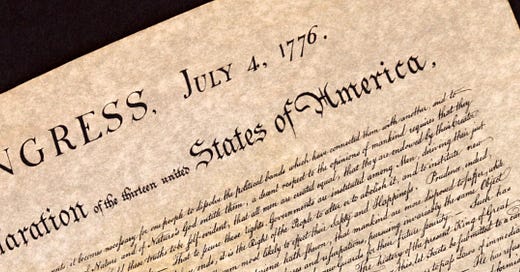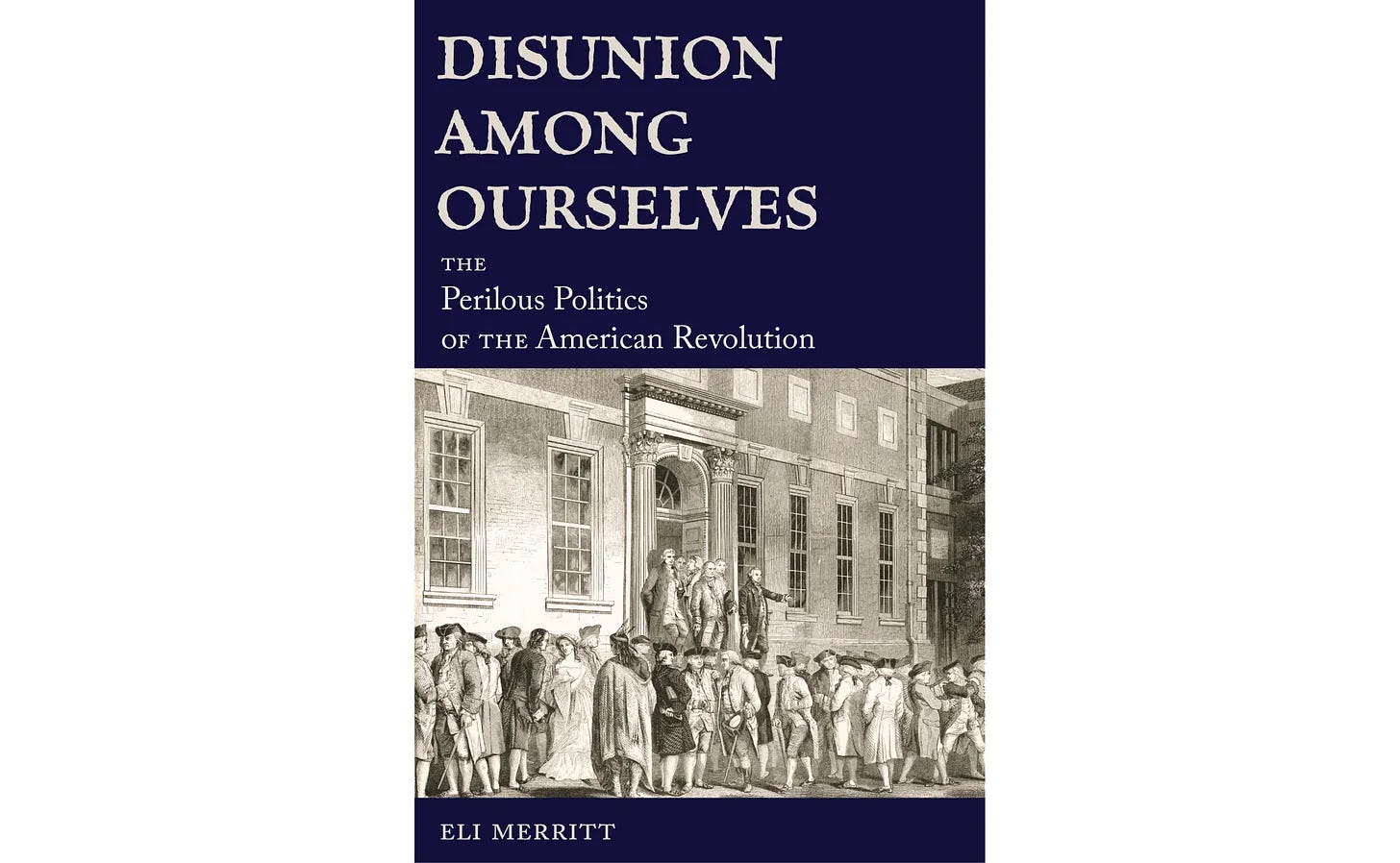Upcoming Talk at the National Constitution Center
'The Enduring Principles of the Declaration of Independence'—a public lecture I will be giving widely in the lead-up to the 250th anniversary in July 2026
The Enduring Principles of the Declaration of Independence
A lecture by Eli Merritt at the National Constitution Center
July 21, 2025
The National Constitution Center in Philadelphia recently invited me to give a talk on “The Principles of the Declaration of Independence.”
We settled on the expanded title “The Enduring Principles of the Declaration of Independence,” and the same day I made the decision to launch a lecture tour on this North Star of American history, from now through July 4, 2026.
Our Declaration, in my view, is the single most important philosophical-political statement of principles in world history—with only the Constitution and perhaps the Magna Carta as close competitors.
I further believe that the Declaration of Independence, rightly understood, can act as a catalyst to inspire, edify, and unite Americans, emboldening citizens from the center-right and center-left to stand together, collectively, in the defense of our constitutional rights and freedoms.
“The Enduring Principles of the Declaration of Independence”
The North Star of American history
Key themes of the talk will include:
Inalienable rights
The “generative fact” of equality
The nature of tyranny
The power of collective action
The right of revolution
History’s vital role in sustaining democracy
The Declaration of Independence not only embodies the abiding principles that have guided the progress of our democracy since 1776.
It also is the foundation stone of the common national narrative we must reinvigorate in order to restore a safe and humane constitutional order.
*******
Eli Merritt is a political historian at Vanderbilt University and the author Disunion Among Ourselves: The Perilous Politics of the American Revolution
Public Lectures
The Enduring Principles of Declaration of Independence
America’s 250th Anniversary: Forging Unity Through History
Why Democrats Should Reclaim the American Founding
How to Talk About the 'Fourth of July'
More Articles by Eli Merritt
Books by Eli Merritt
Take the Next Step
Gift a subscription to a friend or family member
Share, Like, Comment, or Restack below:








Eli sounds like a great and timely talk
I'm looking forward to your presentation! Speaking of the Declaration on Memorial Day, may I share a thought regarding the meaning of "liberty" and "the pursuit of happiness"?
Whatever any scholar said about the "definition" should be viewed with circumspection. I submit that what is and should be controlling (regarding the founding of our nation and the meaning of our Constitution) is what people who fought for them thought the concepts "liberty" and "pursuit of happiness" meant for them and the people for whom they fought.
Have you read "American Scripture: Making the Declaration of Independence" by Pauline Maier? I recommend it highly. The statements in that book that I viewed as most insightful included the following on pp. 131-132, 160.
"The Declaration was" designed "to be disseminated" promptly "by print" and "the printer John Dunlap produced a broadside version the day after it was adopted." It also was "designed" to be "read aloud at public gatherings." Significantly, the "Declaration" was designed "for the ear as well as the eye," and "above all" that was true of the "eloquent preamble." The first two paragraphs of the Declaration are "the most sacred of all American political scriptures." And "when the Declaration was read listeners heard mainly what was already in their heads."
The meanings of "liberty" and "the pursuit of happiness" that matter most are the meanings in the minds of the people who voluntarily sacrificed their own lives, their own limbs, their own liberty and their own happiness for those concepts. Economists say that a thing is worth what people pay for it. So anyone who wants to know what "liberty" and "pursuit of happiness" mean, should consider what they mean to soldiers, not merely to scholars.
Perhaps the best soldiers to look to for answers and examples were General Washington, Nathanael Greene, Alexander Hamilton and Thomas Paine. President Lincoln is another. President Lincoln did not wear a military uniform, but as Commander in Chief, he led and thought very much about liberty as Washington did.